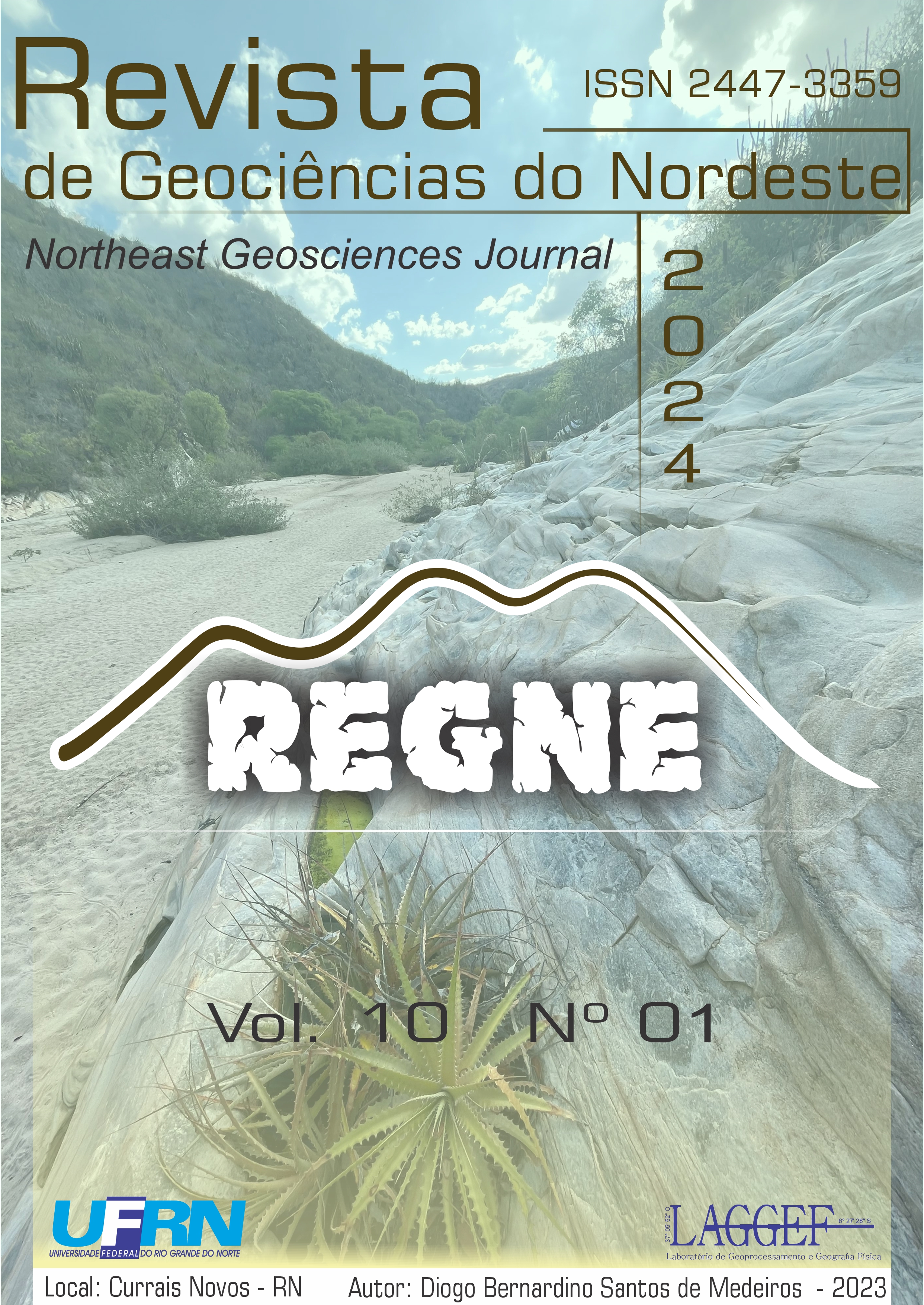Estimativa da turbidez da água utilizando imagens de RPA’s associadas às técnicas de Machine Learning
Water turbidity estimation using RPA’s images and Machine Learning techniques
DOI:
https://doi.org/10.21680/2447-3359.2024v10n1ID34612Abstract
The water quality in reservoirs is crucial for the preservation of ecosystems and human health. Turbidity, which assesses the
presence of suspended particles, is an important indicator typically measured on-site with expensive equipment. However, with the
advancement of Artificial Intelligence (AI), it is possible to estimate turbidity using orbital images associated with indices such as NDTI
(Normalized Difference Turbidity Index). In addition to orbital sensors, another technology widely used for various purposes is remotely
piloted aircraft (RPA), which enables the generation of digital photogrammetric products like Digital Elevation Models and high-detail
Orthophotos. In this context, this study aims to estimate turbidity in reservoirs using RPA images and Machine Learning techniques such
as Artificial Neural Networks (ANN), Support Vector Machine (SVM), Gradient Boosting Machine (GBM), and Random Forest (RF).
To achieve this, on-site surveys were conducted using turbidimeters and RPAs to obtain data for regression analysis to correlate the
information. Based on the results obtained, it was observed that the prediction of turbidity using RF and ANN exhibited the best
performance.
Downloads
Downloads
Published
How to Cite
Issue
Section
License
Copyright (c) 2024 Notheast Geoscience Journal

This work is licensed under a Creative Commons Attribution 4.0 International License.


 Português (Brasil)
Português (Brasil) English
English







